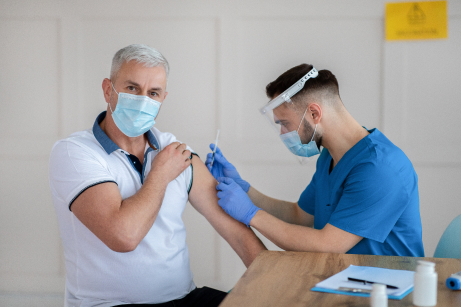Clinical trials are scientific research of new treatments, procedures, or devices to see how well they work. They give participants a chance to contribute to science and get paid.

Here we’ll explain to you how much money a study enthusiast receives for taking part in a clinical study and whether there is a connection between the amount of clinical trial payment and the taken risk.
A clinical trial is a scientific study involving people conducted to evaluate the effectiveness and safety of a drug (mainly). This approach helps to study, evaluate, and analyze the properties of a particular product.
Such studies may involve patients and non-ill volunteers who meet the inclusion criteria and do not have exception criteria specified in the study protocol.

Tests are carried out to see if the drug is safe, how well it works, and what dose will be most effective without serious side effects. Number of participants: 10 to 30 people.

It is determined by the test outcomes. A randomization method is used to assign people to either the study drug or the standard of care treatment. Number of participants: up to 100 people.

Comparison with existing treatments. This stage assesses whether the therapy is safer, helps people live longer, and has fewer side effects. Number of participants: 100 to 1,000 people.

Assessment of long-term safety and health improvements. The stage checks for adverse effects, risks, and health benefits over a long period.
To understand the average sum ranges depending on the study phase, learn the following table:

Clinical trial payment can vary depending on the geographic area, the cost of living, regional demand for patients, and travel requirements. Trials in urban or remote areas may provide more medical study earnings to attract more enthusiasts.

Clinical trial payment can vary depending on the geographic area, the cost of living, regional demand for patients, and travel requirements. Trials in urban or remote areas may provide more medical study earnings to attract more enthusiasts.

Clinical trial payment can vary depending on the geographic area, the cost of living, regional demand for patients, and travel requirements. Trials in urban or remote areas may provide more medical study earnings to attract more enthusiasts.

Clinical trial payment can vary depending on the geographic area, the cost of living, regional demand for patients, and travel requirements. Trials in urban or remote areas may provide more medical study earnings to attract more enthusiasts.

Clinical trial payment can vary depending on the geographic area, the cost of living, regional demand for patients, and travel requirements. Trials in urban or remote areas may provide more medical study earnings to attract more enthusiasts.





How exactly do you get paid for clinical trials? Payment for participating in such studies can vary based on the experiment specifics and sponsor, but common methods include:
This is a simple and quickly accessible payment type. It is usually paid at the end of each visit or when the entire study is completed.
In some cases, participants receive stipends that can cover additional expenses incurred during the study, such as transportation, food, or lodging. They are sometimes given in combination with other forms of payment to ensure that participants are reimbursed for their expenses.
Checks are usually mailed after the study or its milestones have been completed.
Payments for participants are deposited directly into their bank accounts. This method is more popular in larger and longer studies since it reduces delays in payments.
When you find info about some local clinical studies, feel free to reach out via email and inquire “Do you pay for clinical trials?”.
Join a Paid Clinical Trial Today!Payment schedules — lump sum vs. installments.
Organizations usually apply 2 main schedules for research study payments, according to trial length and specifics.
A lump sum is a one-time payment. Participants are usually more interested in shorter or single-visit trials that require less commitment, as immediate payment makes them more willing to join.
Installment payments are more commonly applied in paid clinical trials 2024 that are longer or multiple-visit. They imply you agree the trial organizers will pay you in several installments. For example, the regularity of installments is tied to the study milestones or trial stages.
Generally, income from drug studies is considered taxable income. According to the article “Death and Taxes,” edited by Jamie S. King and Joanna Manning, participants are required to declare their income on their tax returns.
If your total income exceeds a certain amount (e.g., $600 in the United States), the study sponsor may issue a 1099 form requiring you to report the income to the tax institutions.
How much do you get paid for clinical trials? The amount you are paid for joining a clinical study can change considerably.
Clinical trials payment per visit results, among other things, from the study’s peculiarities, the time required, and your level of involvement. For example, you may get more money for sleep studies than for vaccine trials. But it will be more time-consuming. Get acquainted with the average rates:
for 10 nights
for 3 visits
for 6 weeks
 Clinical trials are an integral stage in the development of new drugs, during which it is possible to study the drug and get all the necessary data about it.
Clinical trials are an integral stage in the development of new drugs, during which it is possible to study the drug and get all the necessary data about it.Yes, participants have the right to withdraw from a clinical trial at any time, for any reason, without facing penalties or repercussions. Your safety and well-being are a top priority.
Yes, you can update your account information anytime. After logging in, go to your account settings, where you’ll find options to change your email, password, and other personal details. Make sure to save your changes, and your account will be updated accordingly.
To participate in a clinical trial, you can start by exploring live studies in your area or creating an account with us to match your profile with our studies.